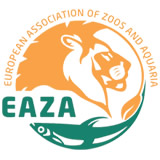Saturday 5 September is International Vulture Awareness Day (IVAD). At the Hawk Conservancy Trust, we love vultures, and we work every day to raise awareness and educate the public about the plight of these wonderful birds and the vital conservation and research work we do to help vulture populations in the wild. Our International Vulture Programme (IVP) has projects in southern and East Africa and south Asia, and we are extremely grateful to our IVP partners who help to fund this programme.









